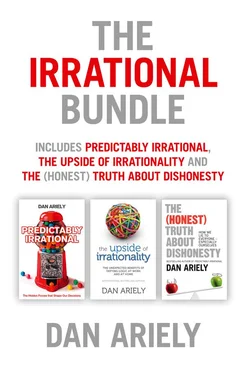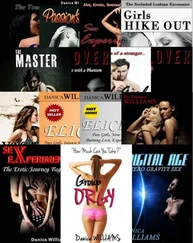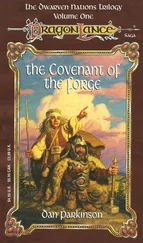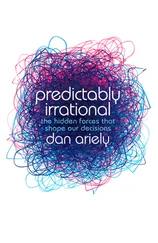Dan Ariely - The Irrational Bundle
Здесь есть возможность читать онлайн «Dan Ariely - The Irrational Bundle» — ознакомительный отрывок электронной книги совершенно бесплатно, а после прочтения отрывка купить полную версию. В некоторых случаях можно слушать аудио, скачать через торрент в формате fb2 и присутствует краткое содержание. Жанр: unrecognised, на английском языке. Описание произведения, (предисловие) а так же отзывы посетителей доступны на портале библиотеки ЛибКат.
- Название:The Irrational Bundle
- Автор:
- Жанр:
- Год:неизвестен
- ISBN:нет данных
- Рейтинг книги:3 / 5. Голосов: 1
-
Избранное:Добавить в избранное
- Отзывы:
-
Ваша оценка:
- 60
- 1
- 2
- 3
- 4
- 5
The Irrational Bundle: краткое содержание, описание и аннотация
Предлагаем к чтению аннотацию, описание, краткое содержание или предисловие (зависит от того, что написал сам автор книги «The Irrational Bundle»). Если вы не нашли необходимую информацию о книге — напишите в комментариях, мы постараемся отыскать её.
The Irrational Bundle — читать онлайн ознакомительный отрывок
Ниже представлен текст книги, разбитый по страницам. Система сохранения места последней прочитанной страницы, позволяет с удобством читать онлайн бесплатно книгу «The Irrational Bundle», без необходимости каждый раз заново искать на чём Вы остановились. Поставьте закладку, и сможете в любой момент перейти на страницу, на которой закончили чтение.
Интервал:
Закладка:
Most of the time, according to the results of the study, Roy is smart, decent, reasonable, kind, and trustworthy. His frontal lobes are fully functioning, and he is in control of his behavior. But when he’s in a state of sexual arousal and the reptilian brain takes over, he becomes unrecognizable to himself.
Roy thinks he knows how he will behave in an aroused state, but his understanding is limited. He doesn’t truly understand that as his sexual motivation becomes more intense, he may throw caution to the wind. He may risk sexually transmitted diseases and unwanted pregnancies in order to achieve sexual gratification. When he is gripped by passion, his emotions may blur the boundary between what is right and what is wrong. In fact, he doesn’t have a clue to how consistently wild he really is, for when he is in one state and tries to predict his behavior in another state, he gets it wrong.
Moreover, the study suggested that our inability to understand ourselves in a different emotional state does not seem to improve with experience; we get it wrong even if we spend as much time in this state as our Berkeley students spend sexually aroused. Sexual arousal is familiar, personal, very human, and utterly commonplace. Even so, we all systematically underpredict the degree to which arousal completely negates our superego, and the way emotions can take control of our behavior.
WHAT HAPPENS, THEN, when our irrational self comes alive in an emotional place that we think is familiar but in fact is unfamiliar? If we fail to really understand ourselves, is it possible to somehow predict how we or others will behave when “out of our heads”—when we’re really angry, hungry, frightened, or sexually aroused? Is it possible to do something about this?
The answers to these questions are profound, for they indicate that we must be wary of situations in which our Mr. Hyde may take over. When the boss criticizes us publicly, we might be tempted to respond with a vehement e-mail. But wouldn’t we be better off putting our reply in the “draft” folder for a few days? When we are smitten by a sports car after a test-drive with the wind in our hair, shouldn’t we take a break—and discuss our spouse’s plan to buy a minivan—before signing a contract to buy the car?
Here are a few more examples of ways to protect ourselves from ourselves:
Safe Sex
Many parents and teenagers, while in a cold, rational, Dr. Jekyll state, tend to believe that the mere promise of abstinence—commonly known as “Just say no”—is sufficient protection against sexually transmitted diseases and unwanted pregnancies. Assuming that this levelheaded thought will prevail even when emotions reach the boiling point, the advocates of “just saying no” see no reason to carry a condom with them. But as our study shows, in the heat of passion, we are all in danger of switching from “Just say no” to “Yes!” in a heartbeat; and if no condom is available, we are likely to say yes, regardless of the dangers.
What does this suggest? First, widespread availability of condoms is essential. We should not decide in a cool state whether or not to bring condoms; they must be there just in case. Second, unless we understand how we might react in an emotional state, we will not be able to predict this transformation. For teenagers, this problem is most likely exacerbated, and thus sex education should focus less on the physiology and biology of the reproductive system, and more on strategies to deal with the emotions that accompany sexual arousal. Third, we must admit that carrying condoms and even vaguely understanding the emotional firestorm of sexual arousal may not be enough.
There are most likely many situations where teenagers simply won’t be able to cope with their emotions. A better strategy, for those who want to guarantee that teenagers avoid sex, is to teach teenagers that they must walk away from the fire of passion before they are close enough to be drawn in. Accepting this advice might not be easy, but our results suggest that it is easier for them to fight temptation before it arises than after it has started to lure them in. In other words, avoiding temptation altogether is easier than overcoming it.
To be sure, this sounds a lot like the “Just say no” campaign, which urges teenagers to walk away from sex when tempted. But the difference is that “Just say no” assumes we can turn off passion at will, at any point, whereas our study shows this assumption to be false. If we put aside the debate on the pros and cons of teenage sex, what is clear is that if we want to help teenagers avoid sex, sexually transmitted diseases, and unwanted pregnancies, we have two strategies. Either we can teach them how to say no before any temptation takes hold, and before a situation becomes impossible to resist; or alternatively, we can get them prepared to deal with the consequences of saying yes in the heat of passion (by carrying a condom, for example). One thing is sure: if we don’t teach our young people how to deal with sex when they are half out of their minds, we are not only fooling them; we’re fooling ourselves as well. Whatever lessons we teach them, we need to help them understand that they will react differently when they are calm and cool from when their hormones are raging at fever pitch (and of course the same also applies to our own behavior).
Safe Driving
Similarly, we need to teach teenagers (and everyone else) not to drive when their emotions are at a boil. It’s not just inexperience and hormones that make so many teenagers crash their own or their parents’ cars. It’s also the car full of laughing friends, with the CD player blaring at an adrenaline-pumping decibel level, and the driver’s right hand searching for the french fries or his girlfriend’s knee. Who’s thinking about risk in that situation? Probably no one. A recent study found that a teenager driving alone was 40 percent more likely to get into an accident than an adult. But with one other teenager in the car, the percentage was twice that—and with a third teenager along for the ride, the percentage doubled again. 6
To react to this, we need an intervention that does not rely on the premise that teenagers will remember how they wanted to behave while in a cold state (or how their parents wanted them to behave) and follow these guidelines even when they are in a hot state. Why not build into cars precautionary devices to foil teenagers’ behavior? Such cars might be equipped with a modified OnStar system that the teenager and the parents configure in a cold state. If a car exceeds 65 miles per hour on the highway, or more than 40 miles per hour in a residential zone, for example, there will be consequences. If the car exceeds the speed limit or begins to make erratic turns, the radio might switch from 2Pac to Schumann’s Second Symphony (this would slow most teenagers). Or the car might blast the air conditioning in winter, switch on the heat in summer, or automatically call Mom (a real downer if the driver’s friends are present). With these substantial and immediate consequences in mind, then, the driver and his or her friends would realize that it’s time for Mr. Hyde to move over and let Dr. Jekyll drive.
This is not at all far-fetched. Modern cars are already full of computers that control the fuel injection, the climate system, and the sound system. Cars equipped with OnStar are already linked to a wireless network. With today’s technology, it would be a simple matter for a car to automatically call Mom.
Better Life Decisions
Not uncommonly, women who are pregnant for the first time tell their doctors, before the onset of labor, that they will refuse any kind of painkiller. The decision made in their cold state is admirable, but they make this decision when they can’t imagine the pain that can come with childbirth (let alone the challenges of child rearing). After all is said and done, they may wish they’d gone for the epidural.
Читать дальшеИнтервал:
Закладка:
Похожие книги на «The Irrational Bundle»
Представляем Вашему вниманию похожие книги на «The Irrational Bundle» списком для выбора. Мы отобрали схожую по названию и смыслу литературу в надежде предоставить читателям больше вариантов отыскать новые, интересные, ещё непрочитанные произведения.
Обсуждение, отзывы о книге «The Irrational Bundle» и просто собственные мнения читателей. Оставьте ваши комментарии, напишите, что Вы думаете о произведении, его смысле или главных героях. Укажите что конкретно понравилось, а что нет, и почему Вы так считаете.












